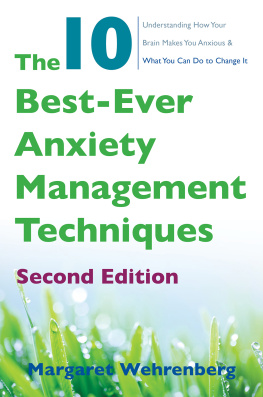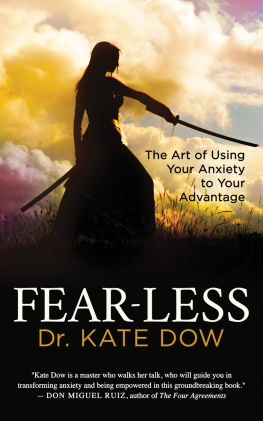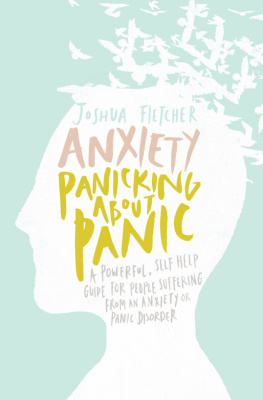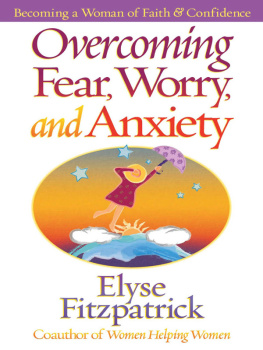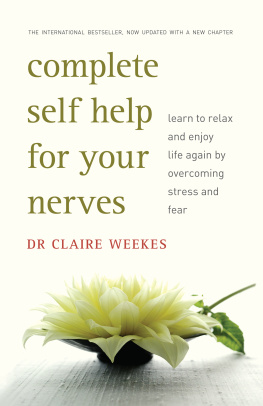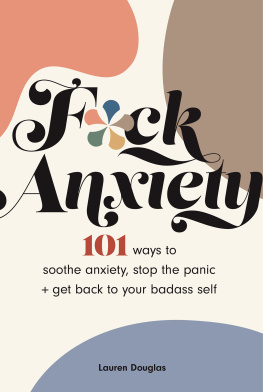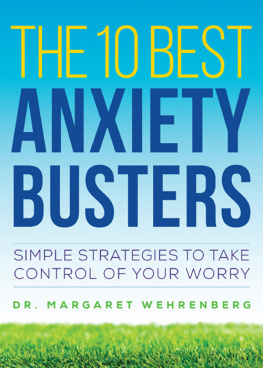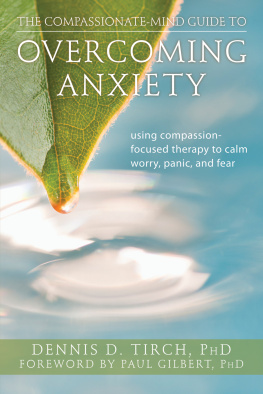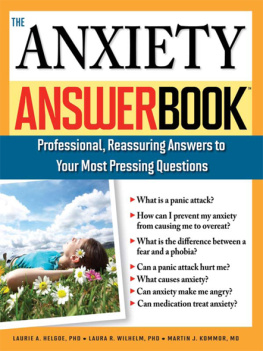
A DVANCE P RAISE FOR
SOOTHE YOUR NERVES
Dr. Angela Neal-Barnetts wisdom, direction, and practical techniques for addressing and managing anxiety, panic, and fear are right on time for a nation of Black women who are sick and tired of being sick, tired, and afraid. Soothe Your Nerves will be a must-have on my clients resource reading guide. Dr. Neal-Barnett helps to shatter the old myths of what it means to be a strong Black woman while giving us encouraging wisdom on being todays healthy Black woman. Thanks so much for your wisdom.
Julia A. Boyd, psychotherapist and author of Can I Get a Witness?
Dr. Angela Neal-Barnett uncovers a much ignored problem and identifies strategies for healing the effects of anxiety on womens lives. This is a book for everyone. There are few psychologists who can tell the stories of those who have suffered from anxiety disorders. Dr. Neal-Barnett speaks for others as no one else can. Let the healing begin.
Gail Elizabeth Wyatt, Ph.D., author of Stolen Women: Reclaiming Our Sexuality, Taking Back Our Lives and coauthor of No More Clueless Sex: Ten Sexual Secrets that Can Work for Both of You
Soothe Your Nerves addresses the major invisible health issues for women of color: anxiety, panic, and fear! Dr. Barnett provides a comprehensive explanation, in laymens terms, of the causes and predisposing factors of these emotional conditions and their destructive effects on Black women. She offers self-help exercises and commonsense, workable solutions that range from conventional medicine to holistic and spiritual treatments. A must-read for women, men, and treatment professionals, Soothe Your Nerves offers hope and healing, which will invariably result in the empowerment of Black women in all aspects of their lives.
Dr. Jeff Gardere, television and radio host, author of Love Prescription
The sin and shame is not in suffering from an anxiety disorder. The sin and shame is in failing to call it what it is and in not getting the help we need and deserve as African-American women. Dr. Angela Neal-Barnett helps us face our disorders and shows us where to turn for help.
Renita J. Weems, Ph.D., author of Showing Mary and Just a Sister Away
Soothe Your Nerves by Dr. Angela Neal-Barnett is a must-read for all women of color. The information is extremely valuable and presented in a manner that allows Dr. Neal-Barnetts message to hit home. Even if you dont suffer from nerves, you need to read this book and become better informed about the conditions that may affect the well-being of the women in your life.
Anita Bunkley, author of Mirrored Life
As a Community Activist, primarily in the African-American community, I witness many women who unfortunately carry the weight of the world on their shoulders. In Soothe Your Nerves, Dr. Angela Neal-Barnett has provided us with the key that will unlock the shackles of pressure. By defining our anxieties, we can realize that we no longer have to buy the bacon and fry it up in a pan. We are free at last!
Yvonne Pointer-Triplet, author of Behind the Death of a Child
For the anxious Black women I knew as a child and didnt
have the knowledge and skills to help, for anxious Black
women everywhere who want to reclaim their lives,
and for Pop-Pop up in heaven
This publication contains the opinions and ideas of its author. It is intended to provide helpful and informative material on the subjects addressed in the publication. It is sold with the understanding that the author and publisher are not engaged in rendering medical, health, psychological, or any other kind of personal professional services in the book. The reader should consult his or her medical, health, or other competent professional before adopting any of the suggestions in this book or drawing inferences from it.
The author and publisher specifically disclaim all responsibility for any liability, loss, or risk, personal or otherwise, that is incurred as a consequence, directly or indirectly, of the use and application of any of the contents of this book.
The names and other details concerning some individuals in this book have been changed.
CONTENTS

INTRODUCTION
Bad Nerves or What?
L ATELY, EVERY TIME I go to church, I miss church. Im in the building; I just rarely make it to the sanctuary. When I do, the choir has sung and the sermons half over. Every Sunday for the past year Ive left the house with my husband and preschooler determined to participate in an entire service. It hasnt happened. Instead, somewhere between childrens church and the sanctuary, I am stopped by somebody who really needs to talk.
And its not just at church. These days it seems everywhere I go, someone wants to speak with me. At the grocery store, at funerals, at the library, even at the carousel in the mall, someone is always stopping me. When I go into my office, its the same thing. My e-mail and voice mail are filled with messages from women who need to talk.
What do these women want to talk to me about? What is so important that they lay in wait for me on a Sunday morning, seek me out in public places, and e-mail me halfway across the country? Anxiety and fear, only thats not what they call it. Nerves, they say, or This situation is working my last nerve or My nerves are bad. Because I am a psychologist who specializes in anxiety among African-American women, they believe talking or writing to me will make it better. What they fail to realize, and what I gently point out, is that talking to me in the hallway for a few minutes during church, snatching a few minutes with me in the cereal aisle, or receiving an e-mail reply from me is not sufficient. Overcoming anxiety and fear involves a daily plan of action.
As these women share their stories, I am reminded of the first Black woman I ever met with bad nerves. Her name was Mrs. Golden Williams, and she was the lead soprano in the Prince of Peace AME Church choir. When I was a teenager, Prince of Peace was famous for its choir. Many of the members had sung professionally, and the choir director had sung with the Fisk Jubilee Singers. People actually came to church on time so that they wouldnt miss the choir. There were a number of great singers in that choir, but Mrs. Williams was the best. She had a five-octave range and sounded to me a lot like Minnie Riperton. Her signature song was It Is Well with My Soul. I used to get goose bumps every time she sang the last line. One Sunday, Mrs. Williams wasnt in the choir. She missed the next three Sundays, showed up, sang It Is Well with My Soul, and, to my knowledge, never came to church or sang in the choir again.
Twelve Sundays later, after sitting through Mrs. Bancrofts pale rendition of the song, I asked my friend Jackie, who at fifteen knew all the churchs business, what happened to Mrs. Williams. Angie, Jackie said, Mrs. Williams has bad nerves.
Not long after Jackie told me this, I witnessed Mrs. Williamss bad nerves for myself. I was in the grocery store with my father when I noticed a familiar figure in the produce section. It was Mrs. Williams, but she looked odd. She was breathing funny and clutching her chest. She ran up to my father and begged him to help her. He walked her to the front of the store and arranged for one of the bag boys to drive her home. When he returned, he shook his head and said, Its her nerves.


